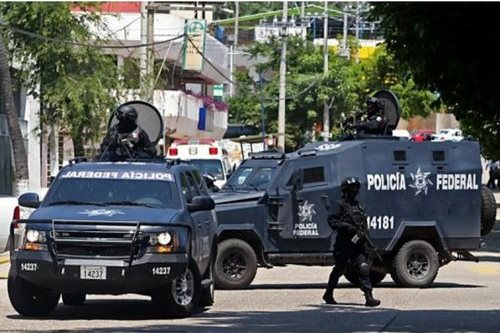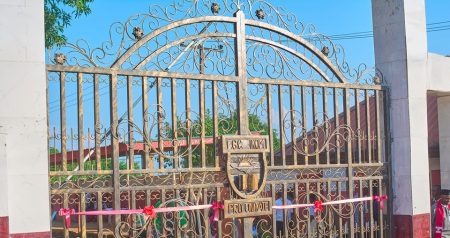The discovery of 381 uncremated bodies piled within a private crematorium in Ciudad Juarez, Mexico, has unveiled a chilling tale of negligence and systemic failure within the country’s forensic system. The corpses, found stacked haphazardly across various rooms, were all embalmed and appeared to have been accumulating for up to two years. Instead of receiving the ashes of their loved ones, families were deceptively given other materials, highlighting a gross betrayal of trust and a disregard for human dignity. This incident brings into sharp focus the challenges Mexico faces in managing the overwhelming number of bodies resulting from ongoing violence, exacerbated by a lack of resources and personnel within its forensic services.
The preliminary investigation points towards the crematorium owners’ “carelessness and irresponsibility” as the primary cause for this macabre accumulation. Authorities emphasize that crematoriums have established daily capacities, and exceeding these limits is a clear violation of protocol. The sheer number of bodies discovered suggests a prolonged period of malpractice, where the operators knowingly disregarded their responsibilities to properly handle and cremate the deceased. While one administrator has surrendered to authorities, the full extent of culpability and the potential involvement of other individuals remain under investigation. The incident raises serious questions about the oversight and regulation of private crematoriums in Mexico, highlighting the potential for abuse and exploitation within a system grappling with an overwhelming influx of bodies.
This grim discovery underscores the broader crisis plaguing Mexico’s forensic system, a system struggling under the weight of an unchecked surge in homicides attributed to organized crime. The sheer volume of bodies requiring processing has overwhelmed existing infrastructure and resources, leading to significant backlogs and delays in identification and processing. This backlog, coupled with a shortage of trained personnel and budgetary constraints, creates a fertile ground for negligence and malpractice, as witnessed in the Ciudad Juarez case. The crematorium incident becomes a stark symbol of the system’s inability to cope with the scale of the problem, exposing systemic vulnerabilities and the urgent need for comprehensive reform.
The lack of transparency and accountability within the forensic system further compounds the challenges. Families seeking closure and justice are often left in limbo, facing agonizing delays and uncertainty regarding the fate of their loved ones. The deceptive practice of providing families with substitute materials instead of ashes underscores a deep-seated disrespect for the deceased and a blatant disregard for the emotional toll on grieving families. This breach of trust erodes public confidence in the system and underscores the need for greater transparency and accountability in the handling of human remains.
Beyond the immediate implications of the Ciudad Juarez incident, this macabre discovery necessitates a broader reflection on the societal factors contributing to Mexico’s ongoing struggles with violence and the subsequent strain on its forensic infrastructure. The prevalence of organized crime and the resulting high number of homicides continue to overwhelm the system, demanding immediate and comprehensive strategies to address the root causes of violence and improve the management of its consequences. The need for systemic reforms within the forensic system is undeniable, requiring increased investment in infrastructure, training of personnel, and implementation of stringent oversight mechanisms.
The path forward requires a multifaceted approach that addresses both the immediate and long-term challenges. Implementing stricter regulations and oversight of private crematoriums is crucial to prevent future occurrences of such egregious negligence. This includes establishing clear guidelines for capacity management, ensuring proper documentation of deceased individuals, and regular inspections to enforce compliance with established protocols. Furthermore, addressing the systemic issues within Mexico’s forensic system necessitates substantial investment in infrastructure, including expanding capacity for body storage, processing, and identification. This also requires recruiting and training qualified personnel, particularly forensic experts, and implementing standardized procedures across all facilities. Finally, tackling the root causes of violence through comprehensive strategies aimed at disrupting organized crime, strengthening law enforcement, and promoting social development is essential for reducing the overwhelming influx of bodies into the system and ultimately alleviating the strain on forensic services. The Ciudad Juarez incident serves as a wake-up call, demanding immediate action and sustained commitment to reforming Mexico’s forensic system and addressing the broader societal challenges that perpetuate violence and undermine justice.














